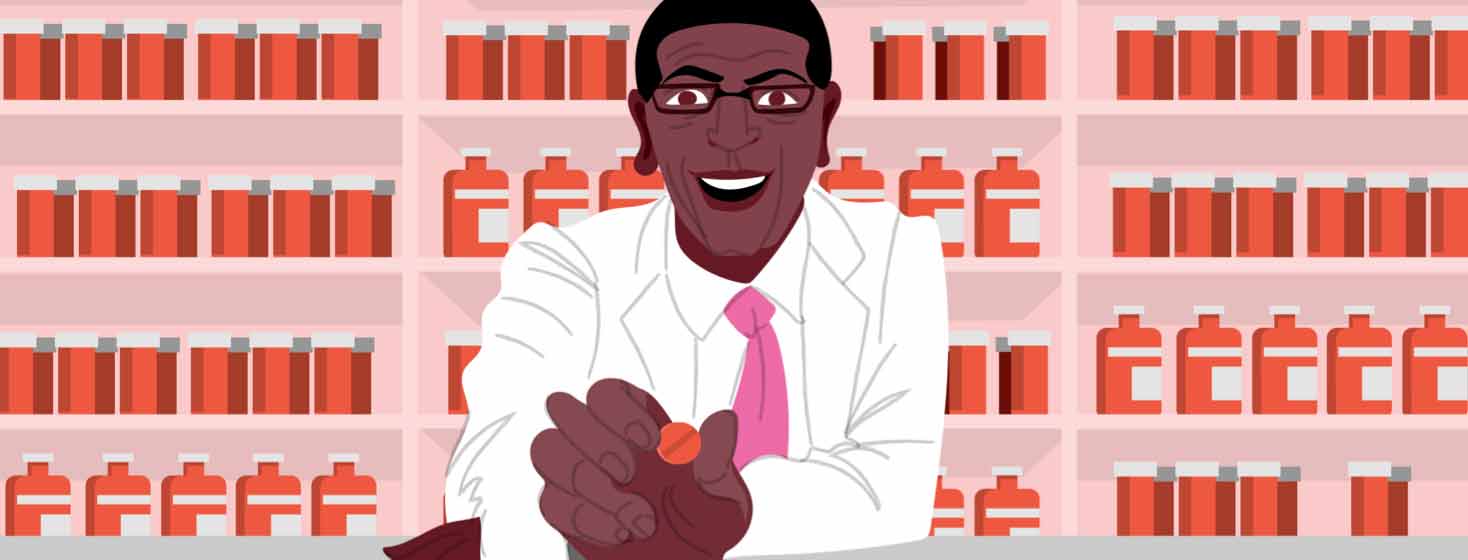Daily Hepatitis C Treatment at the Pharmacy
Editor’s note: Daily witness ingestion (DWI) is a practice used in some countries. If you have questions about this, reach out to your doctor or pharmacist.
Most people pick up their medications at the pharmacy, whether it is a 30 or 90 day supply, and don’t see their pharmacist until the next refill. On the other hand, some people visit the pharmacy daily to get their medication.
This second approach is sometimes used when dispensing medications used to treat hep C. If you fall into this group, the following will outline what to expect when witnessing your daily dose at the pharmacy.
Reasons for witness ingestion of medications
There are many reasons why a medication used to treat Hep C may require daily witness ingestion. Whatever the reason, the pharmacy acts upon the request of the prescriber, who will indicate on a prescription “DWI” (daily witnessed ingestion). This means that a dose needs to be administered daily and witnessed by the pharmacist. The pharmacy must act on the request of the prescriber and cannot deviate dispensing patterns from what was requested.
Opioid agonist therapy
One of the primary reasons why a doctor may choose to prescribe a hep C medication in this way involves the individual's current medication regimen. For example, some people go to the pharmacy daily to take their opioid agonist therapy, such as methadone or buprenorphine/naloxone (Suboxone)1.
These medications treat Opioid Use Disorders, which involve a chronic psychological and physical dependence on opioids, whether they are prescription or street opioids, such as heroin. To ensure that the individual gets the full benefit from treatment, patients on opioid agonist therapies are required to witness their dose at the pharmacy either daily, or at another specified interval.
Because the treatment of hep C can sometimes coincide with the treatment of opioid use disorders, physicians may choose to request that a hep C drug be dispensed at the same time as an opioid agonist therapy, given the convenience factor.
Ensuring medication adherence
Another reason why drugs used to treat hep C may be dispensed daily is to ensure compliance with the medication. Given the high cost of hep C therapies, this method is also used to keep the medication safe from undesirable storage conditions or potential theft.
Tips for new pharmacy patients
If you are a new patient to a pharmacy that will daily dispense your medication, it is important not to feel ashamed - requiring witness ingestion does not mean that there is anything wrong with you. Your doctor has requested this setup to ensure that you receive the most benefit from your hep C medication.
Yes, going to the pharmacy daily is a chore, but it may be the best thing you do to increase the chance of treatment success. Over time, you will likely establish rapport with your pharmacist.
After all, you will see them daily. Don’t hesitate to ask them questions regarding your therapy.
Be sure to ask about the pharmacy hours, including holidays and weekends, to ensure that you don’t accidentally miss treatment. Unfortunately, the pharmacy will not stay open if someone misses a dose.
Remember, your pharmacist is on your side and wants to see you succeed!

Join the conversation